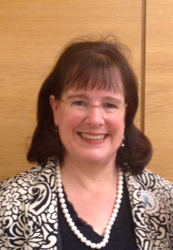Written by Victoria Williams.
 Merily Keller will join an elite group of communicators when she is recognized by the Women Communicators of Austin as this year’s Liz Carpenter Lifetime Achievement Award Winner at the 42nd Annual Banner Brunch, Saturday May 2.
Merily Keller will join an elite group of communicators when she is recognized by the Women Communicators of Austin as this year’s Liz Carpenter Lifetime Achievement Award Winner at the 42nd Annual Banner Brunch, Saturday May 2.
Created in the early 1990s and named after WCA member Liz Carpenter, the award is bestowed upon professional communicators who have demonstrated a lifetime of leadership, vision, outstanding achievement and promotion in the field of communications. Former winners include Harry Cabluck, Liz Carpenter, Dr. Inez Jeffery and Mary Beth Rogers.
It is Keller’s personal connection to a cause kept close to her heart that motivates her to continue making a difference in the lives of others struggling with mental health issues, identifying her as an ideal receipient of this prestigious award. She is the Suicide Prevention Community Education and Training Director for the Texas Zero Suicide Prevention Project. Keller also serves as one of the co-founders of the Texas Suicide Prevention Council with 50-plus local coalitions and statewide members and acts as a master trainer and consultant for Mental Health America of Texas focusing on sharing evidence-based practices with communities across Texas to help build community capacity for suicide prevention, intervention and postvention. Additionally, she is a subject matter expert and advocate in public policy for mental health and suicide prevention.
Learn more about Keller and how she got to where she is today through this Q&A.
Q: What lead you to pursue a career in communications?
A: I first considered a career in communications as a high school student when I edited the Del Rio, Texas, High School newspaper, but the decision was finalized my first semester at The University of Texas at Austin. I entered college the summer after I graduated in 1968 at a very young age, 16, and the first course I took was in Mass Communications. I was introduced to the theories of Marshall McLuhan and decided I wanted to explore the linkages between culture, communication and society. For a small town West Texas girl, his theories of communication and change were captivating.
Q: What do you think is the secret to a successful career in Communications?
A: For a successful career in communications, I think you have to be committed to fostering positive, two-way communication between an organization and its publics. The two-way part of this means that you have to listen, as well as talk (or write) and build in feedback loops to gauge the effects of your communication. This challenge remains the same for all organizations and publics or audiences.
Q: What has been your proudest moment, professionally?
A: My proudest moment, professionally, was developing the first worldwide suicide prevention app, “ASK About Suicide,” and helping to tell the stories of young people in short YouTube type videos who were doing the right thing and getting help for themselves or their friends who were at risk or had thoughts of suicide. These are the types of tools which might have made a difference for our son 15 years ago and prevented his death by suicide. These stories of help and hope can be found at the TexasSuicidePrevention.org website or downloadable from Vimeo at https://vimeo.com/mhatexas/videos.
Q: What words of wisdom do you have to pass on to future communicators?
A: Be flexible and get a broad background in all aspects of communications. The medium will change as society changes, but good “wordsmithing” will always be needed.
A: Get connected with others as mentors and colleagues. In my field of mental health communications, we know that people with more connections in society tend to live longer, and communicators with more connections tend to be better communicators.
Q: How do you feel about receiving the Liz Carpenter Lifetime Achievement Award?
A: I feel very honored to be recognized by Women Communicators of Austin, and very “old,” to be receiving a Lifetime Achievement Award.
Q: If you had to choose a role model, who would it be and why?
A: I joined Women in Communications, Inc. (the predecessor to Women Communicators of Austin) as a university student, and found an “old gals club” offering members professional and political “know how.” It was many of the women I met there as members, advisors and mentors who became role models for me, including Liz Carpenter who taught me about the importance of communicating directly and succinctly and, Anne Durrum Robinson, who taught me about the importance of developing all aspects of yourself (mental, physical, emotional and spiritual) for maximum creativity.
Q: What are your plans for the future?
A: I plan to continue to work in mental health communications and suicide prevention and to look on life as an adventure. But “stay tuned” since life is what happens when things don’t go according to plan. I have a 94-year-old mother who has taught me the importance of staying active physically and mentally, so I hope to follow her example.
Q: How do you like to spend your free time?
A: I believe that life is a grand adventure, and love to spend my free time in planning for adventures and adventure travel. I also enjoy reading, journaling, gardening and spending time outdoors in nature.
Join WCA on May 2nd at our 42nd Annual Banner Brunch to celebrate Merily and our other award winners. Learn more and get your tickets here.
- Can I fire my client? - January 3, 2026
- How can I make time to work on new business development? - September 19, 2025
- How can I get the information I need out of a job interview? - August 14, 2025
